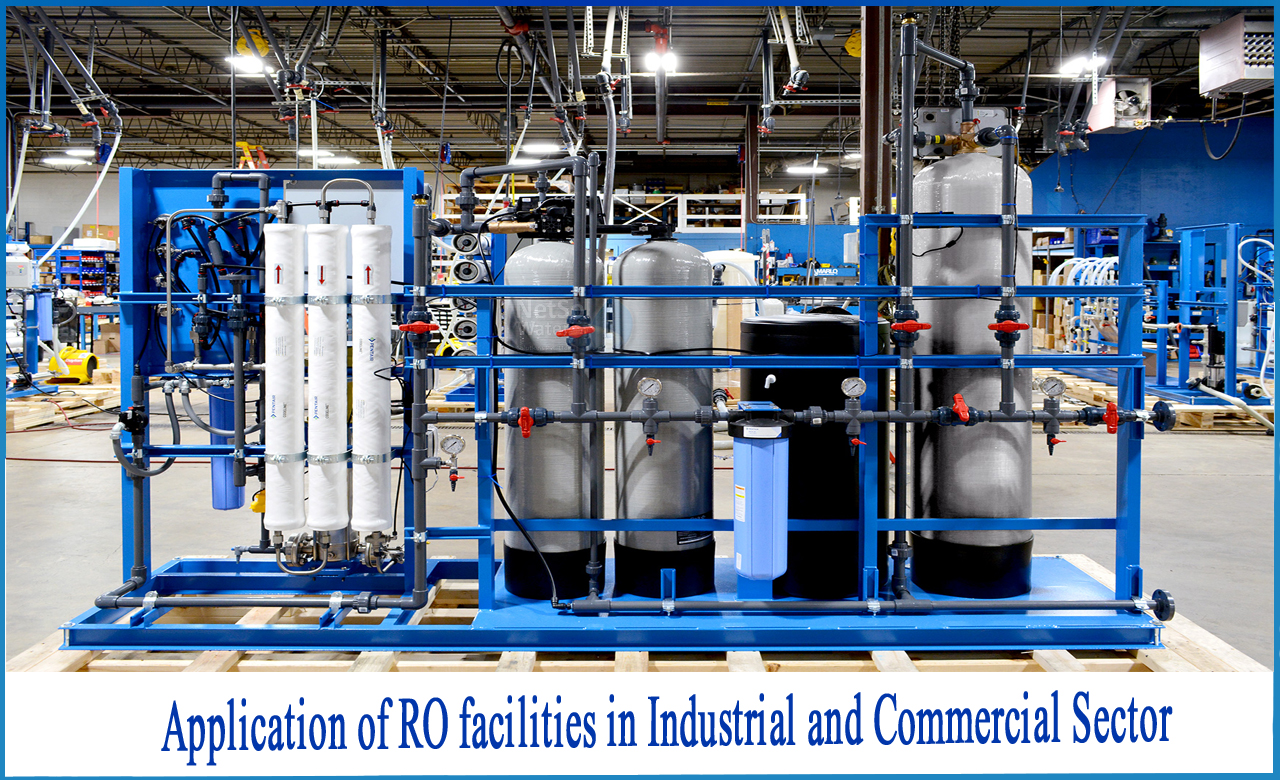What is Reverse Osmosis (RO)?
Reverse osmosis (RO) is regarded as one of the most successful water-filtering processes, producing clean water. RO systems are utilized for a variety of purposes, including whole-house filtration, commercial filtration, aquarium filtration, restaurant filtration, industrial filtration and much more. Whatever type of water you start with, there is almost certainly that an RO system will meet your demands, either for potable use, re-use or safe environmental discharge.
How does RO Systems work?
When pressure forces unfiltered or feed water across a semi-permeable membrane, reverse osmosis (RO) eliminates impurities. To provide safe and clean drinking water, water flows from the more concentrated side, i.e., more contaminants of the RO membrane to the less concentrated side, i.e., fewer contaminants. The permeate is the fresh water that is produced and the waste or brine is the concentrated water that remains.
Small pores in a semipermeable membrane restrict pollutants while allowing water molecules to pass through. It prevents pollutants from entering the membrane's less concentrated side. The contaminated water is rejected and flows perpendicular to the membrane's backside. It is capable of straining or size-reduction of impurities with a diameter of 0.001 microns.
Now, this article introduces the commercial and industrial uses of Reverse Osmosis Systems_
What are the Application of RO facilities in Commercial Sector?
Reverse osmosis (RO) systems are used for commercial and industrial water purification because they can remove chemical pollutants as well as microbiological or biological contamination.
The following are some of the commercial and industrial applications of reverse osmosis (RO) systems:
1: Purification of Municipal Water: Municipal water is used for both home and commercial purposes. In industries, the requirements for high-quality water extends, far beyond cooking as well as washing.
-The food and beverage business pursues quality control so that a soda's flavour remains constant no matter where it is consumed.
-The pharmaceutical as well as chemical industries are, both adversely affected by poor-water quality, due to microbial contamination, chemical residue, salinity, and other factors.
Commercial reverse osmosis (RO) systems are widely used in municipal water purification to ensure high-quality and high-grade water.
2: Desalination of Brackish Water: Brackish water is a mixture of fresh and salt water that contains 1,000-15,000 mg/L of dissolved salts. Water with a salinity of less than <500 mg/Lis recommended for industrial and potable water applications, according to the World Health Organization (WHO).
3: Boiler Feed Water: Hard water is a problem for all the industrial boilers. Scaling, thermal transfer defects, greater downtime for cleaning, and a shorter boiler vessel life cycle are all concerns caused by using hard water at high temperatures. As a result, only softened water should be used to supply and feed the boiler system. Industries such as mechanical, chemical, pharmaceutical, and lumber/pulp use reverse osmosis systems for pre-boiling water treatment/conditioning to attain this purpose.
4: Desalination of Seawater: Oceans and seas with salt levels of up to 35,000 mg/l are the only source of water for many populated places. This high salinity water is also used in marine industrial applications, off-shore drilling, maritime transit, and cruise ships. Continuous usage of high-salt water can harm marine equipment and render it unsafe for human consumption. As a result, the marine industries build high-pressure commercial reverse osmosis systems with specific membranes to remove the salt content from saltwater. It aids in desalination as well as chemical and bacterial pollution reduction.5: Spot-free Rinse: Salt-free water is frequently required in industrial manufacturing, equipment cleaning, and even commercial applications such as car washing, surface rinsing, and so on. Due to the presence of chemicals or magnesium and calcium salts in hard water, it causes scaling, hard surface patches, and even surface bleaching. To reduce equipment damage and extend the product lifecycle, the rinse water is filtered using reverse osmosis systems.
6: Wastewater Treatment: One of the water purification procedures used in the water treatment industry is reverse osmosis. Chemical, bacterial, and dissolved contaminants are frequently removed using reverse osmosis as the final step.
In the wastewater industry, reverse osmosis (RO) systems are used for tertiary water treatment. Similarly, before being disposed of, industrial wastewater is processed with a reverse osmosis (RO) system. Commercial reverse osmosis systems are used in industrial grey water treatment, blackwater treatment, and other applications.
Conclusion
Over the last 50 years, reverse osmosis technology has become significantly more efficient. Innovative design, enhanced membrane materials, more efficient pumps, and improved pre-treatment processes, as well as antiscalant chemicals, are all contributing to this.
To get the most out of reverse osmosis (RO) for your commercial application, look for RO systems from reputable companies like Netsol Water. The firm is unquestionably an expert in the field of water and wastewater treatment. The firm provides a variety of water treatment options, including whole-house RO systems, commercial RO systems, industrial RO systems, Water Softeners and much more.



